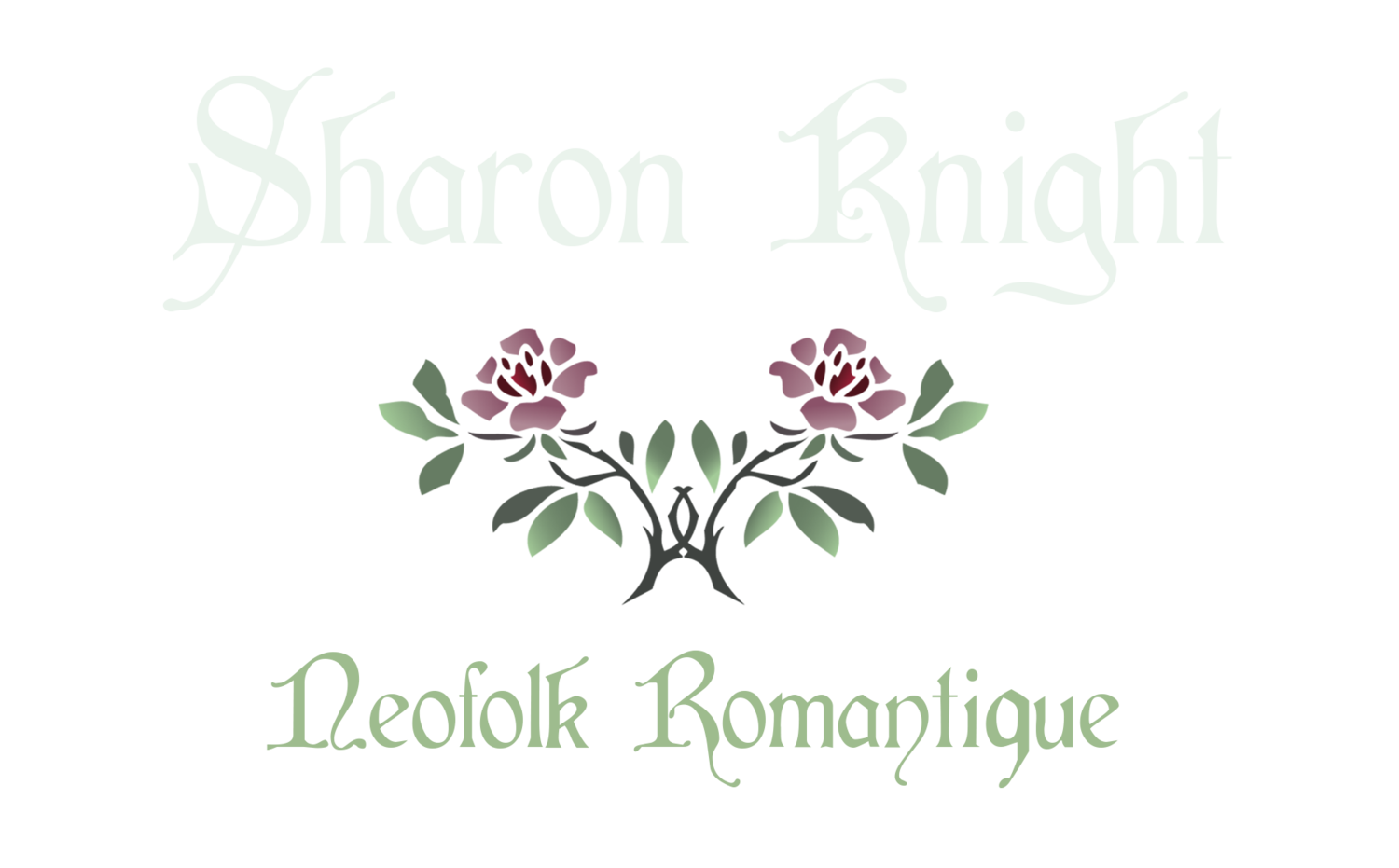Sharon Knight’s Undertow conjures the sensation of standing on the coastline watching the waves break, as they rush towards the tips of your toes, before retreating back into the sea. Throughout the eleven tracks on the record Knight invites you into an otherworldly space that honors the world around her through both mythological and historical stories. “We are deeply intertwined with the natural world. Nature is so much more than a resource for us to use, but a living being in its own right," she says.
Knight is no stranger to making an album, as Undertow marks her tenth record, however this one took eight years to complete. After nearly a decade on the road playing faery festivals, steampunk conventions, and various other concerts, she felt stuck. It was during this time that Knight and Winter, her husband and collaborator, experienced a shift musically. They started to venture beyond her traditional Celtic folk roots, into what they call “Ethereal Electro-Folk” or “Otherworldly Electro-Folk.” The desire for more of a dreamy and fluid sound had Knight delving into music production classes and leaning into inspiration from Nordic artists such as Eivør, Wardruna and Myrkur. While Knight was experimenting musically, she also completed leadership training in Al Gore’s Climate Reality Project. Her growing concern for the severity of the climate crisis had a strong influence on the music that would come to make up Undertow. “Writing these songs became a way to explore my own feelings about climate change, and the destruction that human greed causes,” Knight reflects.
Knight’s passion for the natural world goes far beyond that of her music, as she identifies as an animist, a person who believes that plants, oceans, animals, etc. have a soul. When she was writing Undertow, this worldview of a living, spirited Earth shaped its stories and themes. “The whole album is meant to reflect the many moods of the sea and how they are felt and reflected through our own emotions. We are part of the soul of nature, so naturally the rhythms and moods of the living world will influence our own,” she explains. “Writing this album was my own process of coming to terms with climate change.”
The opening track “Into The Mist” exists as a liminal space both as the entry point into the album and into the alternate universe that Knight has created. The title track then greets us as Knight addresses the full brunt of society’s shortsightedness towards the climate crisis, while also “reveling in the glory of nature.” “I’ve had enough of your bitter wine / Poison the streams and tell us it’s fine / Let us flee from the churches while their dour bells ring / Let us run in the sand and remember to sing,” she sings over a mystical sounding orchestration of strings and a medley of guitars. It’s on “Rusalka” and "The Haunting” that themes relating to the climate crisis emerge again. Knight wrote “Rusalka” from the point of view of a rusalka, or a Slavic mermaid-like spirit, that seeks revenge for a betrayal that ended her life. “My tides will overtake you / Drowning in the voices that forsake you,” she sings in response to people who are aiding in driving climate change or denying it completely. “She is a vengeful spirit saying, ‘You’re going to pay. This is retribution.’” It’s on “The Haunting” that Knight peppers in a dose of hope that society can find their way back to a harmonious relationship with the natural world, “Greed has been our undoing / But I see flowers rising from the ruin / Come alive and plant the seed / We can build the life we need.” “The grass always finds a way to push up through the concrete, and there may be solutions that have yet to reveal themselves to us. Life is always evolving,” she says.
It’s on songs like “Ghost Forest” and “Shipwrecked,” where Knight starts to pull from historical events as inspiration. In the case of “Shipwrecked” Knight wrote from the perspective of the captain of The Carrier Pigeon, a ship that crashed upon the rocks of the California coast in 1853. The wreckage later inspired the name of the lighthouse Pigeon Point.The song speaks to the captain's lament at having made the wrong judgment call, thus endangering his ship and crew. Similarly “Ghost Forest” is inspired by the Neskowin Ghost Forest on the Oregon Coast. In the late 1990s a storm unearthed an ancient sitka spruce forest that had fallen into the sea. Scientists have since theorized that the burial and preservation of these tree stumps, estimated to date back 2,000 years, were likely the result of an earthquake or a tsunami. “I found it really compelling to think what stories this secret underwater forest must have to tell,” Knight says.
At its core Undertow was written as an ode to the sea, but even more than that it’s an offering to the world. For Knight, music is a way of connecting with patterns of being that can’t necessarily be seen. “It’s a way to bring ourselves into resonance with the spirit world.” Thus there isn’t much separation between her spirituality and her music. “I don’t know that I’ve ever written a song that isn’t connected to this world view.” Undertow calls upon listeners to seek out their own aliveness, and to feel intertwined with the world around them.
Right-click on photo to save. Photographer’s credit is in the file name. Please credit the photographer when using these photos.
For promotional purposes only.













